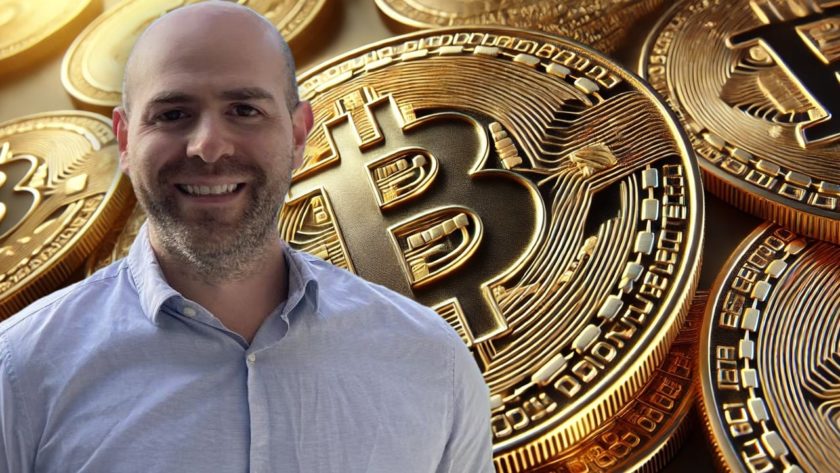The history of money is filled with conflict and competition. In some cases, bloodshed. In 13th-century China, for instance, Genghis Khan instituted what some consider to be the world’s first paper money. It was forced legal tender for all debts under his domain, backed by the Grand Khan’s decree, and the punishment of death.
“Is this true for all fiat currencies?” Eswar Prasad, a professor of trade policy at Cornell University, asks in his latest book, “The Future of Money: How the Digital Revolution Is Transforming Currencies and Finance.” If it was before, it likely isn’t now.
Money is changing, Prasad notes. Cash is slowly being phased out. Digital representations of dollars are on the rise. Cryptocurrencies are laying down roots. Money, in short, is becoming more voluntary. There are more choices in how to spend money – there are credit cards and mobile payments – and even more choices about what money to spend.
“We’ve certainly come to an era now where private currencies are in real competition with central bank currencies,” Prasad told CoinDesk in a video interview.
A large part of Prasad’s book considers how central banks will deal with this monetary revolution. The major trendlines, of private companies creating their own money, the rise of open-source crypto projects, the fintech stack, have not even begun to play themselves out.
To stay relevant, governments around the world will likely issue their own central bank digital currencies (CBDCs). This might be the most significant monetary event of all, which will have far-reaching consequences at every level of society.
Money will never have been more transparent, more programmable, more technocratic. In his evenhanded account, Prasad notes how CBDCs might give banks a run for their money as well as improve market access for the financially underserved. But they won’t solve every issue – like the perennial debate between security and privacy (more on that later).
Read more: CBDCs Can Stop Aid Falling Into Terrorist Hands | Netta Korin
It’s an ambitious book, covering the diverse landscape of digital money, and one that will remain relevant for years to come. That’s quite a feat considering the quickly changing nature of this field. Who can fault Prasad’s attention on Facebook’s proposed digital currency, libra (now renamed diem)? Indeed, the world is undergoing a monetary revolution, where kings rise and fall in a matter of days. Let’s be happy it’s less severe than Genghis Khan’s fiat.
CoinDesk caught up with the author to discuss Bitcoin’s legacy, the problems with CBDCs and more recent events that might make the history books. The interview has been lightly edited and condensed.
You wrote a book called “The Future of Money.” Just to start, in a decade will there be more or fewer currencies?
I suspect there is going to be a winnowing out of currencies. When money first came into being, it was largely private currencies circulating. With the establishment of central banks, private currencies were essentially driven out of business by government-issued currencies. We’ve certainly come to an era now where private currencies are in real competition with central bank currencies.
But in the world of decentralized and centralized cryptocurrencies, I think we are going to see a winnowing, which will leave a few decentralized ones and, more importantly, some centralized ones to continue competing with central bank currencies, at least as mediums of exchange.
Do you expect something like the digital euro or yuan would cause consolidation among state-backed currencies?
In countries that are small, or where the central banks themselves are not that credible, and where their currencies suffer from a lot of volatility or possibly inflation or hyperinflation, the easy availability of digital versions of major currencies such as the dollar, the euro or even the Chinese renminbi, or even stablecoins issued by corporations such as Facebook, could lead to the decimation of some of the smaller currencies.
Many of these currencies already live in the margins of viability, because their central banks are not seen as very trusted. So if you have these digital currencies, either government-issued or private, easily available for the citizens of some of these countries, you can well see them displacing their local currency.
Libra, now diem, features prominently in your book. The original vision was battered beyond belief, but the project isn’t necessarily dead on arrival. Will another private company ever attempt to do something of that scope?
Diem was noble in its objectives. It’s a more efficient fiat currency that could bring low-cost digital payments to the masses and create a low-cost efficient payment system for cross-border transactions that are cheaper, quicker and easier to track. I think those are very worthy objectives.
Read more: Diem: A Dream Deferred? | Opinion
And certainly there is a fundamental need even in advanced economies, such as the U.S., that diem is addressed to meet among people who lack easy access to low-cost digital payments. In the U.S., for instance, you need either a debit card or a credit card or a bank account to have access to most forms of digital payments.
In many emerging-market countries mobile payments are becoming the norm, but still there are many people left out of the formal financial system.
There is a question about whether one really trusts a corporation like Facebook to not end up monetizing the payment services it provides.
And there are also some financial stability considerations. You know, diem is supposed to be a stablecoin backed by reserves of dollars or other hard currencies. But the Diem Association indicates that the diem units will be issued against the backing of $1 cash or cash-like instruments. One thing the global financial crisis taught us is that cash-like instruments that may seem very liquid in normal times may end up not being liquid in abnormal times. You could end up actually with something like diem becoming an unregulated, money-market mutual fund, which creates all sorts of financial stability risks.
And furthermore, if you have central bank digital currencies, that undercuts the user case for diem, because the central bank is providing a low-cost digital payment system. Why do you need Facebook to be able to do this? So I think they are facing some real, technical, conceptual and also policy challenges.
Over the past two years, two extreme economic views gained prominence. MMT, the idea that central banks can print without limit and something like “the Bitcoin mind” that the fiat system is teetering on collapse. Is it possible to square those views?
The aftermath of the global financial crisis was a very fertile time for Bitcoin to emerge. After all, that was a time when trust in government institutions, including central banks, and trust in traditional financial institutions, such as commercial banks, was breaking down. So the notion of being able to conduct financial transactions without the intermediation of a central or commercial bank was a very attractive proposition.
One thing we have learned in the years since the financial crisis is that central banks still have a great deal of power to create money and provide liquidity to the financial system.
You might expect this sort of money creation to lead to a decrease in the value of the money, the dollar in particular, but other major reserve currencies have also held their value quite well. That makes people more willing to retain central bank money because they know, when the chips are down, the central bank will provide liquidity. That’s why fiat currencies retain their value.
This is a proposition limited to a very small number of reserve currency-issuing economies, including the United States, the eurozone, Japan, Britain and a handful of others. Smaller economies, developing countries certainly couldn’t get away with this lack of monetary discipline.
I think this raises the larger question about whether fiat currencies will be given a serious degree of competition by cryptocurrencies, especially ones that have restricted supply. That seems to be one of the key value propositions or something like bitcoin; they cannot be created at will.
Will bitcoin force governments to be more fiscally responsible?
The irony of bitcoin is it was supposed to serve as a medium of exchange without a trusted party intermediating that transaction. But it has not worked that well as a medium of exchange. It has a very volatile value relative to the unit of account in most economies. And, as we know, bitcoin is quite expensive to use, transactions are rather slow, and it is quite cumbersome.
Bitcoin has not delivered on its initial promise, but somewhat paradoxically, it has become a store of value, with people holding on to it as a speculative investment.
Bitcoins legacy is going to be a very rich one. The [generic] blockchain technology underpinning the network has enabled the creation of a vast array of new financial products and services. And I think it has shown a path towards more decentralized finance, which will bring many benefits.
The other ironic part of Bitcoin’s legacy is that bitcoin was meant to take the place of central bank money, while crypto might in fact spur central banks to create digital versions of their money to remain relevant at the retail level. But certainly, as mediums of exchange, I think offshoots of bitcoin, especially stablecoins, but also more centralized cryptocurrencies, perhaps including ethereum, will start giving fiat currencies some degree of competition.
There’s an idea that currencies can’t be both decentralized and non-volatile [without a peg]. Some bitcoiners think money has to pass through several phases as a store of value, as a global unit of account before it becomes a medium of exchange. Is that something that you’ve seen in the history of money?
In monetary history, it has actually worked the other way. Currencies that serve as mediums of exchange, because they’re effective in that function, start having intrinsic value that then allows them to be held as stores of value.
So it is not often the case that you have a store of value, that then starts playing a medium-of-exchange function. We do have other stores of value where the value seems to come from scarcity, like gold.
There are questions about whether something like ether – if Ethereum does adopt proof-of-stake – could serve as a more efficient medium of exchange, because it would then have lower latency and higher throughput. So maybe that might be a route to stability.
But it’s hard to see proof-of-work protocols successfully supporting mediums of exchange. Bitcoin’s Taproot upgrade is supposed to provide smart contract functionality, which might actually increase the value of bitcoin, and improve its case as a medium of exchange, by improving its utility. But we don’t know yet how effectively that upgrade will be implemented.
What do you think the legacy of El Salvador will be?
El Salvador is trying to do what many other countries with very poor policies and ineffective central banks have tried to do: export their domestic monetary policy to some foreign party. (They did it before, when adopting the U.S. dollar as their national currency.) The notion of using bitcoin seems to be twofold. First, to escape the hegemony of the U.S. dollar and second, to ride on the bitcoin wave.
After all, if El Salvador can accumulate bitcoin, and contributes to making bitcoin even more valuable by convincing other countries to also adopt it as a medium of exchange, then El Salvador could gain some advantages as an early adopter.
But I think this is the Salvadoran living in a bit of a fool’s paradise. As I said, bitcoin doesn’t seem to have the ability to serve effectively in day-to-day transactions. And, ultimately, if you think about its ability to pay for imports, to meet its debt obligations, the reality is that El Salvador is still going to require real money. Bitcoin isn’t quite going to do the trick.
Read more: Bitcoin in El Salvador: Why Is It Worth the Effort? | Rodolfo Andragnes
The broader aspect is that the government is trying to make up for its weak central bank and economic policies by adopting a foreign payments system. Crypto, unfortunately, is not going to solve any of the fundamental problems the country is beset by. A quick fix like this is not going to succeed in the long run, not even in the short term.
Do you support strong privacy rights for CBDCs?
This is a fundamental question that central banks that are contemplating the issuance of CBDCs are going to have to grapple with. No central bank wants its retail money to be used for nefarious purposes, such as money laundering, terrorism, financing or other illicit activities. And the good thing about a digital form of your currency is it allows for auditability and traceability of transactions.
But if you have auditability, that means the public will have to compromise on its privacy and confidentiality in basic transactions.
I happen to think we should preserve privacy and other basic human rights in modern societies, and that is going to factor into the design of CBDCs. It looks like the technology will allow for some of these compromises to be stuck.
So, for instance, if you think about what China is doing in its digital currency trials, it is setting up low-grade digital wallets. These wallets provide a greater degree of privacy and confidentiality and transactions, but you can use them for low-value transactions. For high-value transactions, you have to meet your customer requirements and so on.
We may end up in a world where there are these different possibilities with CDBCs, some of which give you not cash-like anonymity, but at least some degree of transaction privacy and other forms of CBDCs that are fully traceable and auditable so that a central bank can be assured it is not losing control over how its money is used.
The elimination of cash will be a consequence of digital payment systems proliferating. The reality is, you’re going to live in a world where every transaction will leave a digital trace, such that the transaction is either [viewable] by a private payments provider or by the central bank or some government agency.
There is a question whether we want to live in such a world. This is not just a purely technocratic matter. It’s not just a matter of economic policy. These conversations are going to have to happen at the level of society.
For instance, the Swedish central bank, the Riksbank, has made it very clear that while it can come up with the technical design for an e-kroner, the decision about whether or not to issue it will involve a decision by the country’s parliament. There’s urgency in every economy to have these discussions, because the reality is the use of cash is withering away fast.




